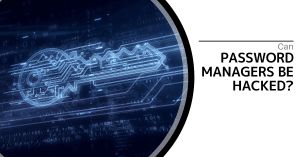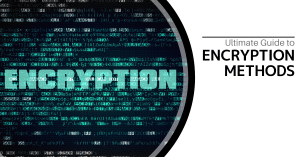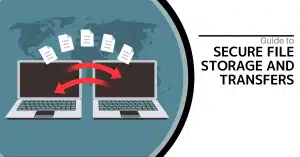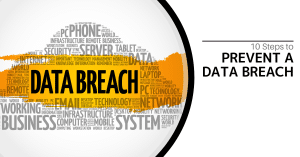Network security is crucial for accountants to protect sensitive financial data and client information from cyber threats. It ensures compliance with regulatory requirements and maintains client trust.
Accountants handle vast amounts of sensitive data, including personal and financial information. This data is highly attractive to cybercriminals. Effective network security measures help prevent unauthorized access, data breaches, and financial fraud. It also safeguards the integrity of financial records, ensuring accuracy and reliability.
Robust network security supports compliance with various regulations such as GDPR and PCI DSS. By investing in network security, accountants can prevent potential financial losses, legal consequences, and damage to their reputation. Prioritizing network security is essential for maintaining trust and delivering reliable accounting services.

Credit: www.akgvg.com
Common Threats
Accountants face many network security threats. These threats target their sensitive data. Understanding these threats is crucial for protection.
Malware
Malware is a type of harmful software. It can damage or steal data. For accountants, this means losing important financial information.
Malware spreads through:
- Infected email attachments
- Malicious websites
- Unsecured downloads
Regular software updates help prevent malware. Antivirus programs also provide protection. Always be cautious of unknown sources.
Phishing Attacks
Phishing attacks trick users into giving personal information. These attacks often look like legitimate emails. Accountants can fall victim to these scams.
Phishing emails might:
- Ask for login credentials
- Request financial information
- Contain malicious links
Always verify the sender’s identity. Never click on suspicious links. Use spam filters to reduce phishing emails.
Data Protection Strategies
Data protection strategies are crucial for accountants. These strategies keep sensitive client information safe. Let’s explore some effective methods.
Encryption
Encryption converts data into a code to prevent unauthorized access. This is vital for accountants who handle sensitive financial data.
Here’s a simple table showing types of encryption:
| Type of Encryption | Description |
|---|---|
| Symmetric Encryption | Uses one key for both encryption and decryption. |
| Asymmetric Encryption | Uses a public key for encryption and a private key for decryption. |
Always use strong, complex passwords for encryption keys. This adds an extra layer of security.
Access Controls
Access controls determine who can access specific data. This is essential to maintain data integrity.
- Role-Based Access Control (RBAC): Assign roles to users and grant permissions based on roles.
- Multi-Factor Authentication (MFA): Requires two or more verification methods.
- Least Privilege Principle: Users get only the access they need.
Implementing these controls helps prevent unauthorized access. Always review access permissions regularly.
Firewall And Antivirus
Network security is crucial for accountants. Two key components are firewall and antivirus software. These tools help protect sensitive financial data from cyber threats.
Choosing The Right Firewall
A firewall acts as a barrier between your computer and potential threats. It monitors incoming and outgoing traffic. There are two main types of firewalls: hardware and software.
- Hardware Firewall: These are physical devices. They are placed between your network and the internet. They are best for larger firms with multiple devices.
- Software Firewall: These are programs installed on individual computers. They are suitable for smaller firms or solo accountants.
Choose a firewall that fits your firm’s size and needs. Ensure it can handle your network’s traffic. Always keep your firewall updated.
Effective Antivirus Solutions
Antivirus software protects against malware, viruses, and other cyber threats. It’s essential for keeping client data safe. Here are some features to look for:
- Real-time Scanning: This feature checks files as they are accessed. It helps catch threats immediately.
- Automatic Updates: Virus definitions change constantly. Ensure your antivirus updates itself regularly.
- Comprehensive Protection: Look for software that covers all types of threats. This includes spyware, ransomware, and phishing attacks.
Effective antivirus solutions can prevent data breaches. They help maintain client trust. Keep your antivirus software up to date for maximum protection.

Credit: www.adroitacademy.com
Regular Software Updates
Regular software updates are crucial for accountants. They help keep your data safe. Updated software has the latest security features. These features protect against new threats. Ignoring updates can leave you vulnerable. Hackers exploit outdated software. Stay ahead by keeping your software current.
Patch Management
Patch management involves updating software to fix security flaws. These flaws are called vulnerabilities. A patch is a piece of code. It is designed to fix these vulnerabilities. Accountants handle sensitive data. They need to ensure their software is patched regularly. This reduces the risk of data breaches.
Here are some steps for effective patch management:
- Create a patch management policy.
- Regularly check for new patches.
- Test patches before applying them.
- Apply patches promptly.
Automatic Updates
Automatic updates are a convenient way to stay secure. They ensure software updates are installed as soon as they are available. This reduces the chance of missing critical updates. For accountants, this is particularly important. It means less manual work and more time to focus on clients.
| Benefits of Automatic Updates |
|---|
| Ensures timely installation of updates. |
| Reduces manual intervention. |
| Minimizes security risks. |
| Increases software performance. |
Enable automatic updates on all devices. This includes computers, tablets, and smartphones. It’s a simple step that can make a big difference. Protect your data and ensure your software is always up-to-date.
Employee Training
Employee training is crucial for accountants to ensure network security. Without proper training, employees can unknowingly create security risks. Educated employees are the first line of defense against cyber threats.
Security Awareness Programs
Security awareness programs are essential for accountants. These programs teach employees about potential threats. They also provide strategies to avoid these threats. Regular training sessions keep security practices fresh in mind.
Effective programs include:
- Phishing simulations
- Workshops on password management
- Guidelines for safe internet use
Phishing simulations help employees recognize suspicious emails. Workshops on password management teach the importance of strong passwords. Guidelines for safe internet use reduce risks from harmful websites.
Best Practices For Accountants
Best practices for accountants include regular updates and strong passwords. They should always use secure networks for sensitive data. Implementing two-factor authentication adds an extra layer of security.
Here are some best practices:
- Regularly update software and systems
- Use unique, strong passwords
- Enable two-factor authentication
- Secure sensitive data with encryption
Regular updates prevent exploitation of known vulnerabilities. Strong passwords make it harder for hackers to gain access. Two-factor authentication adds another barrier against unauthorized access. Encrypting sensitive data keeps it safe from prying eyes.
Incident Response Plan
Accountants deal with sensitive financial data daily. Protecting this information is crucial. An Incident Response Plan helps in managing and mitigating security breaches. This plan ensures quick action and limits damage.
Creating A Response Plan
Creating an Incident Response Plan involves several steps. First, identify potential threats. This includes phishing, malware, and insider threats. Next, define roles and responsibilities. Each team member should know their duties during an incident.
Develop clear procedures for each type of threat. This ensures a swift and effective response. Use a communication plan to inform all stakeholders. This keeps everyone updated with accurate information.
| Step | Description |
|---|---|
| Identify Threats | Recognize potential security risks like phishing and malware. |
| Define Roles | Assign specific tasks to team members. |
| Develop Procedures | Create steps to handle different threats. |
| Communication Plan | Keep stakeholders informed with accurate updates. |
Post-incident Analysis
After an incident, conduct a Post-Incident Analysis. This helps understand what happened. Identify what worked and what did not. This analysis improves future response plans.
Gather data on the incident. This includes timelines, actions taken, and outcomes. Create a report with this data. Share it with the team for review. Use this feedback to enhance your plan.
Regularly update your Incident Response Plan. This keeps it effective against new threats. Training sessions help keep the team prepared. Conduct drills to test the plan. This ensures everyone knows their role.
- Gather Data
- Create a Report
- Review with Team
- Update Response Plan
- Conduct Training and Drills
Benefits Of Network Security
Network security is crucial for accountants. It offers numerous benefits that cannot be overlooked. Let’s explore the benefits of network security for accountants in detail.
Client Trust
Clients share sensitive information with accountants. This data needs protection from cyber threats. A strong network security system ensures this protection.
When clients feel their data is safe, they trust the service provider more. Trust is essential for long-term client relationships. It helps in retaining and attracting new clients.
Here are some key points:
- Enhanced client confidence in data safety
- Positive reputation in the market
- Increased client retention rates
Compliance With Regulations
Accountants must comply with various regulations. These regulations mandate data protection and privacy. Failing to comply can lead to severe penalties.
Network security helps in achieving compliance. It ensures all data protection standards are met. This keeps the business safe from legal troubles.
Consider these benefits:
- Avoid hefty fines and penalties
- Meet all legal requirements effortlessly
- Build a compliant and secure practice
| Benefit | Description |
|---|---|
| Client Trust | Enhanced confidence in data safety and positive reputation. |
| Compliance | Avoid fines and meet legal requirements. |
Future Trends
Network security is crucial for accountants. The future holds new trends that will shape this field. Understanding these trends helps accountants stay secure and efficient.
Emerging Technologies
Emerging technologies are transforming network security. These technologies include:
- Artificial Intelligence (AI): AI can detect and prevent security threats.
- Blockchain: Blockchain ensures secure and transparent transactions.
- Quantum Computing: Quantum computing offers new ways to encrypt data.
These technologies enhance security measures. They help accountants protect sensitive data better.
Evolving Threat Landscape
The threat landscape is always changing. New threats emerge every day. Understanding these threats is crucial for network security.
Some evolving threats include:
- Ransomware: Ransomware locks data and demands payment.
- Phishing: Phishing tricks users into revealing sensitive information.
- Advanced Persistent Threats (APTs): APTs are long-term threats targeting specific organizations.
Accountants must stay updated on these threats. Regular training and awareness are key.
| Technology | Benefit |
|---|---|
| AI | Detects and prevents security threats |
| Blockchain | Ensures secure transactions |
| Quantum Computing | Encrypts data in new ways |
Staying updated with technology and threats is essential. It ensures accountants can protect their data and clients effectively.

Credit: www.linkedin.com
Frequently Asked Questions
What Is Network Security?
Network security is the practice of protecting data and resources on a network. It includes measures like firewalls, encryption, and access controls to prevent unauthorized access and cyber threats.
Why Do Accountants Need Network Security?
Accountants handle sensitive financial data that can be targeted by cybercriminals. Network security helps protect this data, ensuring confidentiality, integrity, and availability.
What Are Common Network Security Threats?
Common network security threats include malware, phishing attacks, and ransomware. These threats can compromise sensitive financial data and disrupt accounting operations.
How Can Network Security Improve Client Trust?
Strong network security measures demonstrate a commitment to protecting client data. This builds client trust and enhances your professional reputation.
Conclusion
Ensuring robust network security is crucial for accountants. Protecting sensitive financial data helps maintain client trust. Implementing strong security measures can prevent data breaches. Regularly updating systems and training staff are essential steps. Prioritize network security to safeguard your accounting practice and ensure compliance with regulations.
Stay proactive and secure your network today.








